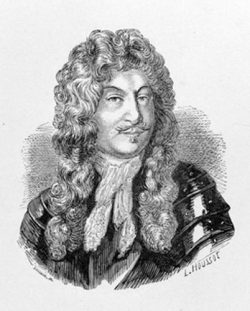Abraham Duquesne (1610-1688)
A protestant who served in the French royal navy
Abraham Duquesne was born around 1608 in Dieppe, into a long-established Huguenot family of ship-owners.
At the age of 17 he was already in charge of a ship. He entered the royal navy and took part in naval operations in the Thirty Years War becoming a captain. In 1644, he served in the Swedish navy as vice admiral and defeated the Danish fleet at the battle of Femem.
When he returned to France in 1647, Mazarin gave him the command of a squadron, then he was appointed lieutenant general of the navy in 1667. He won many victories, including the battle in 1676 against the combined fleets of both Spain and Holland at Agosta, a Mediterranean port.
He made many enemies at court because of his loyalty to Protestantism, even though Colbert protected him. Nevertheless Louis XIVth did establish his estate, called Le Bouchet, as a marquisate ; this was a reward for his outstanding service to the crown. However, the conditions were : “that there would be no act of worship of the Pretended Reformed Religion on his estate”. But no other favour was shown to him ; the king said to the marquis, “I am sorry, sir, that you prevent me from granting other favours to a man of such outstanding capacities as yourself.” Unperturbed, Duquesne replied, “When I fought against Your Majesty’s enemies, sir, I never thought about which religion they belonged to. All that mattered to me was the fact that you had given orders to attack.”
Exceptionally the king gave him special protection
After the Revocation of the edict of Nantes, Duquesne was allowed to stay in France without having to abjure his faith, even though all the other protestant naval officers at this time had to either abjure or emigrate. But Seignelay, the Minister for the Navy, who had also been instrumental in drawing up the Edict of Fontainebleau, struck his name off the list of officers in the royal navy in 1686 – indeed, Seignelay was renowned for his hatred of Huguenots in general and had a particular aversion to Duquesne.
He died in Paris on the 1st of February 1688 and was buried on his estate, Le Bouchet, where his body still lies. However, one of the sons who had emigrated put his heart in an urn and took it to Aubonne in Switzerland, where it was placed in a large family tomb which can still be seen today.
His wife had to abjure in order not to lose all the family possessions and his children were forced to leave the country.
Bibliography
- Books
- ROSSIGNOL Ferdinand, Les protestants illustres, Paris, 1862
- VERGE FRANCESCHI Henri, Abraham Duquesne, huguenot et marin du roi Soleil, France Empire, Paris, 1992, p. 444
Associated notes
-
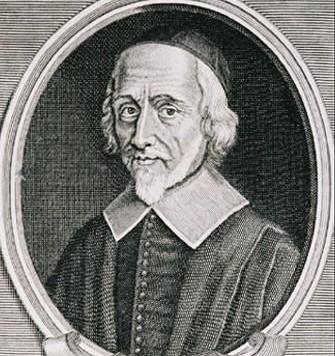
Pierre Du Moulin (1568-1658)
Pierre Du Moulin was a scholar and a well known orator, but he is probably mostly remembered today as the first pastor of the Charenton temple. -
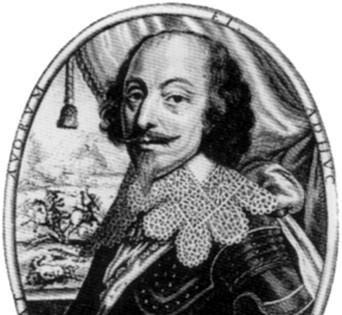
Henri de Rohan (1574-1638)
Henri de Rohan, a protestant from Brittany, had the privilege of being protected by Henri IV, and at the king’s death he became the leader of the reformed protestants in... -
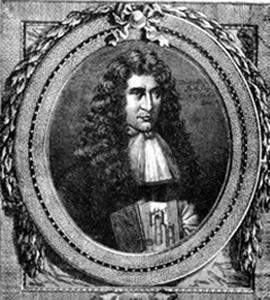
Denis Papin (1647-about 1712)
Denis Papin, a physicist, always remained loyal to his reformed faith and this is why he had to work abroad. It was in Germany, in the province of Hesse, that... -
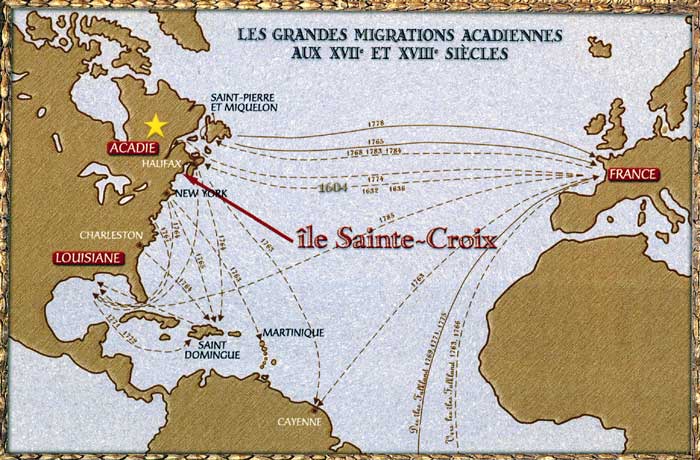
Pierre Dugua de Mons (about 1560-1628)
The Calvinist nobleman Pierre Dugua de Mons founded Acadia and with the help of Samuel Champlain, created the basic structure of a French colony in Canada. -
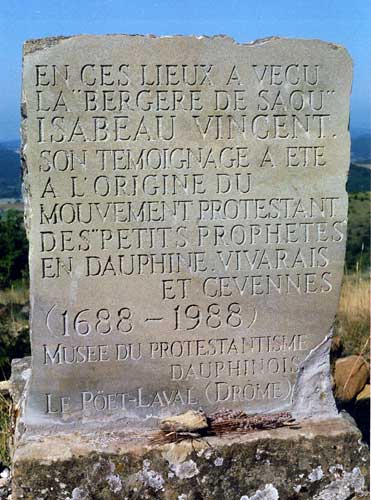
Isabeau Vincent
Isabeau Vincent, was a young shepherdess living near Crest, who started the protestant movement called the « minor prophets » in the Dauphiné, the Vivarais and the Cévennes.

